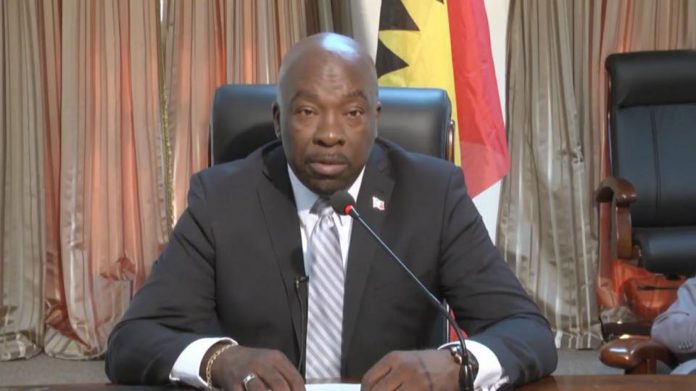By Robert A. Emmanuel
Minister of Information Communication Technologies Melford Nicholas revealed that the implementation of mobile number portability could be delayed until the last quarter of this year, as he revealed a plethora of plans for his ministry in the upcoming year.
Mobile number portability has been a constant demand by the public as it would allow citizens to retain their phone numbers if they transfer from one mobile network to another.
Discussions on this initiative began in May 2019, however the pandemic disrupted any significant movement on its completion.
Speaking during the Budget Debate on Friday, Nicholas — the Member of Parliament for St John’s City East — provided the public with an update as to its implementation.
“The week before, I indicated that there needed to be an acceleration of mobile number portability this year and in a later conversation with [Manager of APUA’s Telecoms Business Unit] Vaughn Browne … he indicated that his critical supplier, Ericsson, said they would not be able to deliver until the end of August so I gather that mobile number portability will be delayed,” he said.
In 2019, Minister Nicholas said several technical problems needed to be addressed before the move to number portability can be realised.
Moreover, the Minister of Information Communication Technologies (ICTs), Utilities and Energy, also outlined a number of other priorities for the government as he defended his ministry’s budgetary allocation of $15.3 million.
One of the initiatives that he said he was interested in developing was a financial technology sector in the country, claiming that it could be beneficial in diversifying the economy.
Financial Technology (fintech) refers to companies using new technology to compete with traditional financial methods in the delivery of financial services such as artificial intelligence, blockchain, cloud computing, and big data.
He noted that during his travels to a World Expo in Dubai, Saudi Arabia, he learned of the potential benefits for the country.
“When I engaged a particular vendor who wanted to do business in Antigua, all of their personnel … was from India and other parts of the world and all Dubai was [doing] was providing them with a shell for which they had to provide services on a global scale.
“And it occurred to me that Antigua could benefit from this fintech industry, we have the infrastructure … and what we need are the other two elements; the University of the West Indies will be producing students … and what we must now have is the ability to pull it all together with our residency programme,” he said.
The residency programme was implemented during the pandemic, according to Nicholas, as he noted the programme which originally set to sunset after two years will become a permanent programme.
Another issue he raised was cyber security where last year a major offshore company had its computer systems attacked, and this affected a number of local businesses which used its services.
Nicholas revealed that a cyber security response team will be established to address cyberattacks against public and private institutions.
Additionally, he said that a digital training academy will be established at the former Government Assisted Technology Endeavour (GATE) facility in Coolidge to train public servants in the use of digital technology as part of the government’s digital transformation push of information sharing across the government.
Members of the opposition United Progressive Party have frequently called for more information sharing to allow for better decision making on issues.
However, Nicholas explained that “one of the areas that has plagued us in government … is that we are not only dealing with a lack of information when you want it … but oftentimes information is kept in silos within the government, so the whole idea of the Digital Training Academy is to [allow for] the movement of information upwards, downwards and across the government.”

